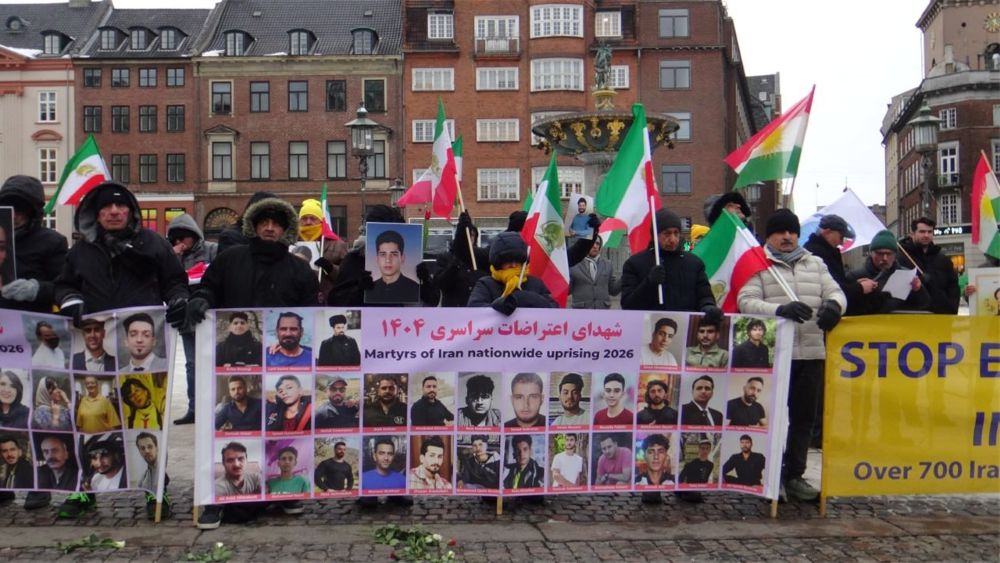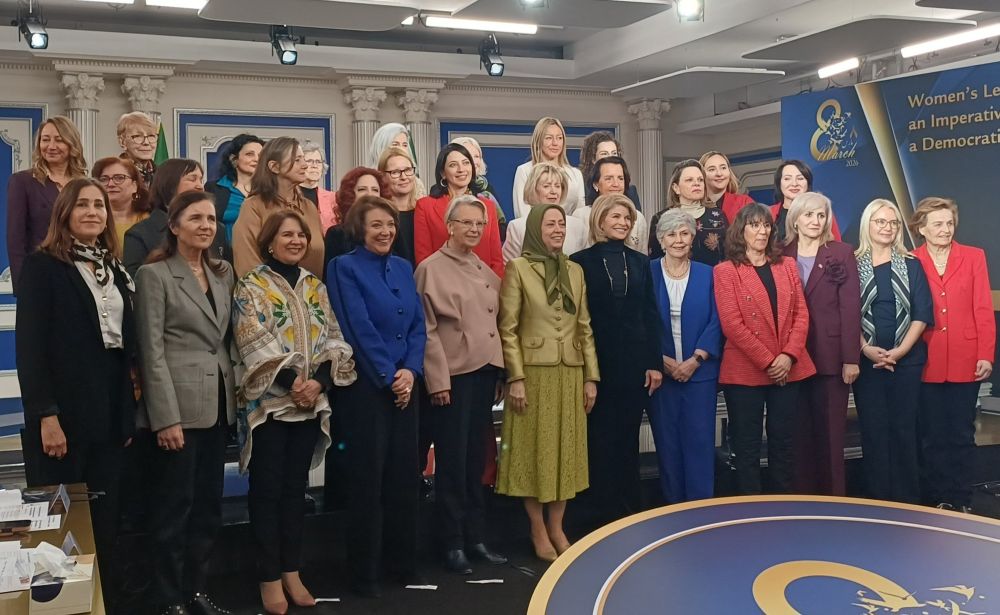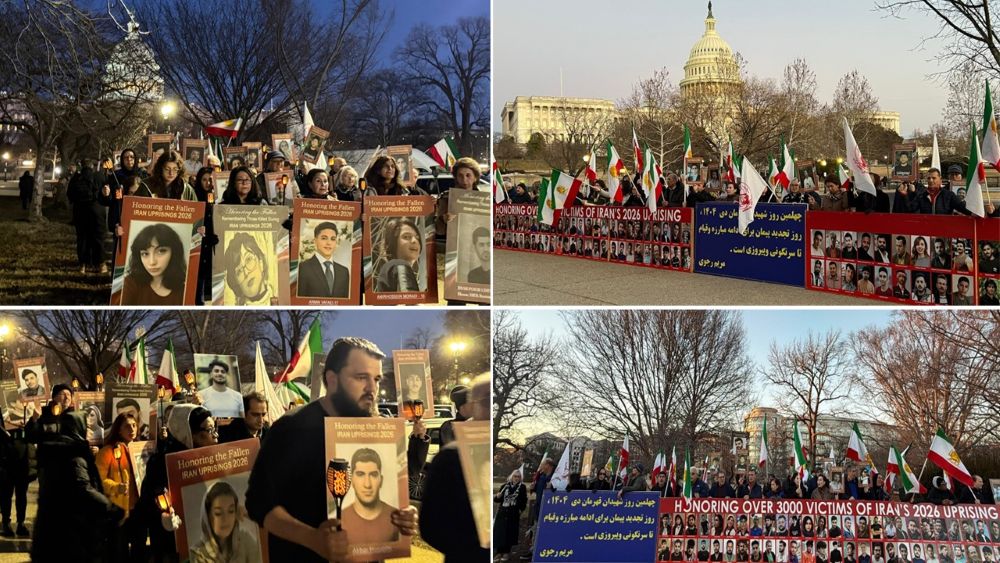On Thursday, February 4, 2021, the Belgian court of Antwerp is scheduled to rule on the diplomat-terrorist of the Iranian regime, Assadollah Assadi, and his three accomplices in connection with the bombing plot at the 2018 Iranian Resistance Gathering in Villepinte, France. In this regard, a group of representatives of the Parliamentary Assembly of the Council of Europe(PACE) have written a letter to the President of the Assembly.
In addition, Senator Roberto Rampi, Secretary of the national delegation from Italy at PACE released the following press release about the letter.
40 Members of Parliamentary Assembly of the Council of Europe (PACE) call for revision of Iran policy, effective measures to counter Iran’s repression at home, terrorism abroad
Rome, Italy, February 2 – 40 members of the Parliamentary Assembly of the Council of Europe from all political groups, from 21 European countries, wrote a letter to PACE’s President, the Hon. Rik Daems, expressing their “grave concerns on the situation of human rights in Iran,” adding, “For four decades, the Iranian regime has been brutally oppressing its people and while they have been indiscriminate in stripping citizens of their every individual and social rights, women, youth and minorities have faced the most oppression.”
The parliamentarians also noted, “The domestic policy of repression and exporting terrorism and fundamentalism abroad have been the foundation of Iran’s survival strategy for decades, with the latter having been supported by Iran’s embassies in Europe.”
Referring to the foiled bombing plot against the Iranian opposition National Council of Resistance’s (NCRI) major gathering in Villepinte, near Paris, in June 2018, the lawmakers highlighted the conclusion of the Belgian National Security Service (VSSE), which stated, “The plans for the attack were developed in the name of Iran at the request of its leadership.”
The signatories also denounced Tehran regime’s policy of “blackmail[ing] Western countries by using dual nationals as pawns in exchange for its terrorists in foreign jails.”
These nefarious actions, they emphasized, calls “for a review of policy toward Iran in all areas [and] serious and effective measures,” that included predicating “any economic and trade relations with the Islamic Republic of Iran on the improvement of the human rights situation in Iran and an end to the regime’s terrorism on European soil.”
In recalling the “statement by the Council of the European Union dated April 29, 1997,” they stressed that “agents and mercenaries of Iran’s intelligence services with diplomatic, journalistic, and economic cover should be tried, punished, and expelled, and centers with a religious or cultural cover promoting terrorism and fundamentalism should be closed,” adding, “Granting asylum and citizenship to MOIS agents and mercenaries should be a red line.”
Copies of the letter were forwarded to the Honorables Charles Michel, President of the European Council, and Josep Borrell Fontelles, High Representative of the EU for Foreign Affairs and Security Policy/Vice-President of EU Commission.
Senator Roberto Rampi
Secretary of the national delegation from Italy at PACE
Co-Sponsor:
Hon. Anna ZÁBORSKÁ,
Chairperson of national delegation from Slovak Republic at PACE
The full text of this letter is as follows:
Honorable Rik Daems
President of the Parliamentary Assembly Council of Europe, Avenue de l’Europe
F-67075 Strasbourg Cedex, France
January 25, 2021
Dear President,
We, the undersigned write to express our grave concerns on the situation of human rights in Iran. For four decades, the Iranian regime has been brutally oppressing its people and while they have been indiscriminate in stripping citizens of their every individual and social rights, women, youth and minorities have faced the most oppression.
In December 2020, the United Nations General Assembly condemned Iran for its gross violations of human rights for the 67th time. The European Union itself and human rights organisations like Amnesty International have continuously condemned Iran’s human rights abuses over the years.
We are also deeply concerned over the continued use of torture and ongoing execution of young protesters who took to the streets in the November 2019 protests calling for freedom in Iran.
The domestic policy of repression and exporting terrorism and fundamentalism abroad have been the foundation of Iran’s survival strategy for decades, with the latter having been supported by Iran’s embassies in Europe.
On July 1, 2018, German police arrested Assadollah Assadi, a diplomat working at the Iranian embassy in Vienna, in a joint operation between police, the judiciary and security services from Germany, France, and Belgium. Investigations revealed that as a senior Ministry of Intelligence and Security (MOIS) agent, Assadi had plotted an attack on the annual gathering of Iran’s organised opposition, the National Council of Resistance of Iran (NCRI) in Villepinte, Paris, attended by 100,000 people according to press reports. He wanted to implement this plan together with three other Ministry of Intelligence agents who had received asylum and later granted citizenship in Belgium (Amir Saadouni, his wife, Nasimeh Naami and Mehrdad Arefani). While Mrs. Maryam Rajavi, the NCRI’s president-elect was the target of the attack, the event was attended by international political figures, parliamentary delegations and personalities from Europe and around the world. If successful, it would have been the largest terrorist attack on European soil and essentially a massacre.
The Belgian National Security Service (VSSE) reported in February 2020 that, “The plans for the attack were developed in the name of Iran at the request of its leadership. Assadi didn’t initiate the plans himself.” The VSSE emphasized that Assadollah Assadi is an MOIS officer working under the diplomatic cover of the Embassy of the Islamic Republic of Iran in Vienna (Austria).
In another report, the VSSE stated that Assadi carried the explosive device on a commercial flight from Iran to Austria. He handed over the explosives to Amir Saadouni and Nasimeh Naami two days before the attack was to be carried out.
This undeniable evidence calls for a review of policy toward Iran in all areas. Europe must hold Javad Zarif accountable for his diplomat’s terrorist act.
The Iranian regime seeks to blackmail Western countries by using dual nationals as pawns in exchange for its terrorists in foreign jails.
While condemning any policy of appeasement and concessions to the Iranian regime, we call for serious and effective measures, including:
– To condition any economic and trade relations with the Islamic Republic of Iran contingent on the improvement of the human rights situation in Iran and an end to the regime’s terrorism on European soil.
– In accordance with a statement by the Council of the European Union dated April 29, 1997, agents and mercenaries of Iran’s intelligence services with diplomatic, journalistic, and economic cover should be tried, punished, and expelled, and centers with a religious or cultural cover promoting terrorism and fundamentalism should be closed. Granting asylum and citizenship to MOIS agents and mercenaries should be a red line.
We thank you in advance for considering our letter and look forward to hearing from you on this critical matter.



